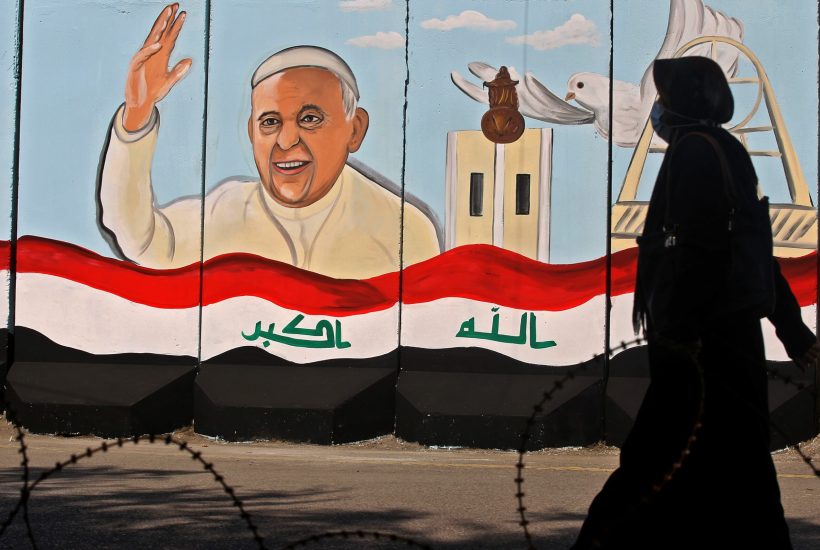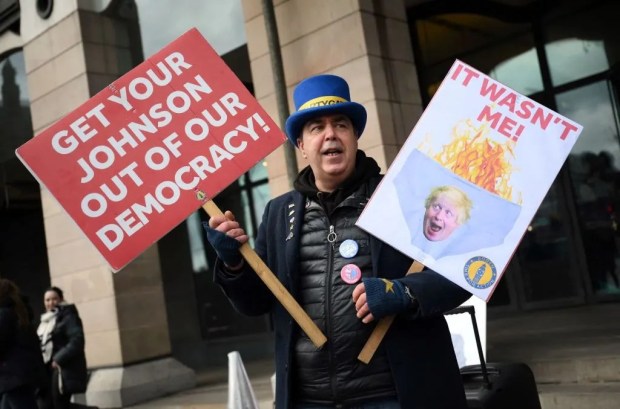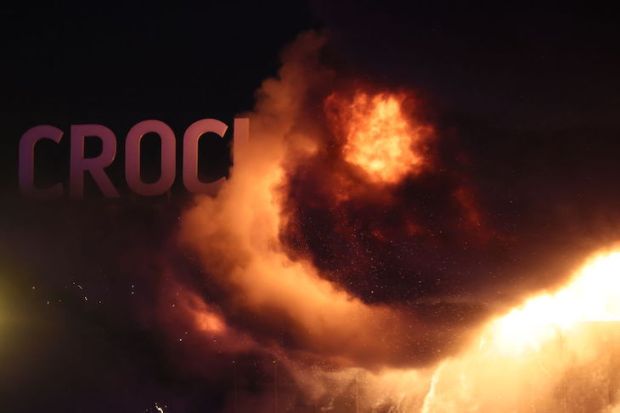You could be forgiven for taking a cynical view of Pope Francis’s visit to Iraq this weekend. How could the Pope’s rhetoric about ‘fraternity’ alter the brutal reality for the country’s Christians, whose population has dwindled from 1.3 million to 200,000 since the US-led invasion? Might the visit end up legitimising a political class that has failed to defend Christians against discrimination and jihadist persecution? Even the Archbishop of Erbil bluntly remarked that the first papal trip to Iraq was ‘not going to help Christians materially or directly, because we are really in a very corrupt political and economic system. No doubt about that. [Pope Francis] will hear nice words… But when it comes to day-to-day issues, no, I think that’s a different story.’
Yet from the moment of the Pope’s arrival on Friday at Baghdad’s Cathedral of Our Lady of Salvation, where he was greeted by a spectacular display of dancers and swordsmen before leading the recitation of the Lord’s Prayer in Arabic, a more optimistic note emerged. The Pope has a gift for these grand, symbolic occasions — he looks both solemn and as if he is relishing every moment. ‘All Iraqis are happy, not just the Christians,’ said one onlooker. ‘I’ve never felt more alive,’ said Omar Mohammed of the website Mosul Eye.
Then, on Saturday, Francis sat down with Grand Ayatollah Ali al-Sistani, the first time a pope has met a Shia leader of such high rank, and a chance for al-Sistani to urge that Iraq’s Christians should be able to live in ‘security and peace’. Just by visiting the modest home of this media-shy but hugely influential cleric, Pope Francis was undermining the cause of Shia extremists. The Middle East analyst Hayder al-Khoei pointed out: ‘The militants might not care much about international public opinion, but they do notice that the overwhelming majority of Iraqis — including the main Shia Islamist political parties and religious groups — are welcoming the visit. They like to portray themselves as defenders of the faith and of the country, but on this issue they are clearly out of step.’
In fact, the Pope’s visit may already have helped the country’s minorities. Last week, the Iraqi parliament finally passed a long-awaited bill offering reparations to Yazidis, Christians and others who survived kidnapping by Isis. It’s widely suspected that the Pope’s visit prompted the passing of the new law.
Other effects are less immediate. The work of rebuilding Christian communities — and literally rebuilding demolished churches — will, at best, take many years. But Francis’s visit, by affirming the presence of Iraq’s Christians at this precarious moment for the Middle East, will help the faithful to persevere.
Of course, since this is Pope Francis, there also had to be a confusing speech full of dubious theological speculations about ‘the courage to look at the stars’. But hopefully that will be forgotten long before the images of the Vicar of Christ journeying as a friend to the long-suffering people of an ancient Christian land.
Got something to add? Join the discussion and comment below.
Get 10 issues for just $10
Subscribe to The Spectator Australia today for the next 10 magazine issues, plus full online access, for just $10.




















Comments
Don't miss out
Join the conversation with other Spectator Australia readers. Subscribe to leave a comment.
SUBSCRIBEAlready a subscriber? Log in